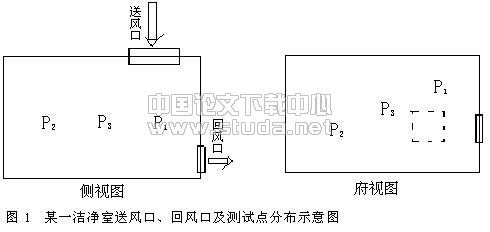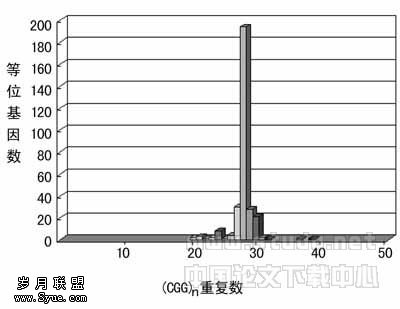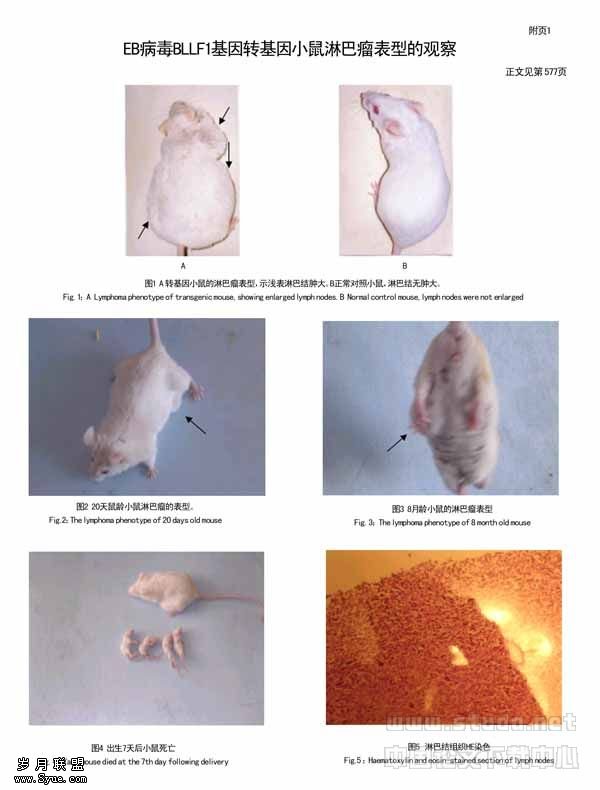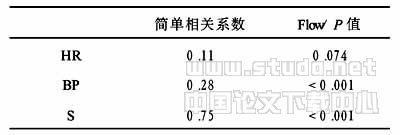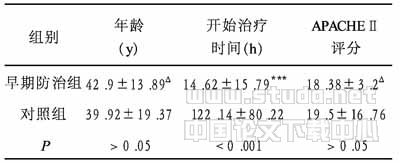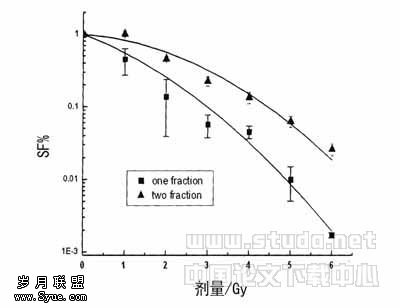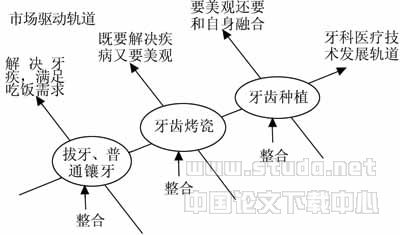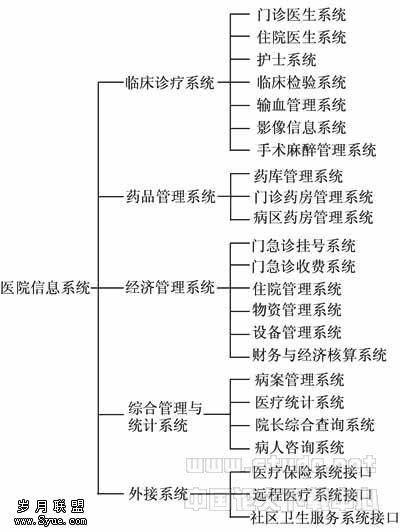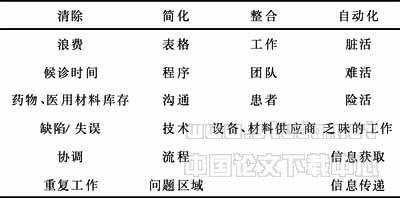环氧化酶-2在肝细胞癌及癌旁肝硬化中表达及意义
【摘要】 [目的] 探讨环氧化酶2(COX-2)在肝细胞癌(HCC)、癌旁肝硬化和正常肝组织中的表达及其意义。[方法] 应用免疫组织化学法检测30例HCC石蜡包埋组织、25例癌旁肝硬化组织及10例正常肝组织标本中COX-2的表达情况,分析其与肝细胞癌临床病理特征间的联系。[结果] COX-2蛋白在HCC、癌旁肝硬化中表达阳性率分别为70.0%和92.0%,显著高于在正常肝组织中的20.0%(P<0.05),而COX-2在癌旁肝硬化组织中的表达高于HCC组织。COX-2蛋白在分化好HCC中的表达显著高于分化差的HCC(P<0.05),转移组中COX-2蛋白表达显著高于无转移组(P<0.01);而COX-2蛋白的表达与肿瘤大小、有无包膜及AFP水平无关。[结论] COX-2蛋白在肝细胞癌、癌旁肝硬化组织中高表达,表明COX-2可能在肝细胞癌的发生、过程中起着重要作用。
【关键词】 肝肿瘤
Expressions of Cyclooxygenase-2 in Hepatocellular Carcinoma Tissue and Carcinoma Adjacent Tissue with Cirrhosis
Abstract: [Purpose] To investigate the expressions and significance of cyclooxygenase-2(COX-2) in hepatocellular carcinoma tissue, carcinoma adjacent tissues with cirrhosis and normal liver tissue. [Methods] The expression of COX-2 in 30 case with hepatocellular carcinoma, 25 cases with carcinoma adjacent tissues with cirrhosis and 10 cases with normal liver tissues were detected by SP immunohistochemical staining. The relationship between the expression and clinicpathologic features in HCC was analyzed. [Results] The expression of COX-2 in hepatocellular carcinoma and its adjacent tissues with cirrhosis were 70.0% and 92.0% respectively, and they were higher than that in normal liver tissue (20.0%). The COX-2 expression in carcinoma adjacent tissues with cirrhosis was higher than that in HCC. Expression of COX-2 in well differential HCC was higher than that in poor differential HCC, and higher in case with metastasis than that without metastasis(P<0.01).The expression of COX-2 in HCC did not relate to tumor size, tumor capsula and the level of AFP. [Conclusion] High expression of COX-2 in HCC and carcinoma adjacent tissues with cirrhosis indicates that the COX-2 expression might play an important role in carcinogenesis and progression of HCC.
Key words: hepatocellular neoplasms; cyclooxygenase-2; immunohistochemistry
环氧化酶(cyclooxygenase,COX)是催化花生四烯酸(arachidonic acid,AA)合成内源性前列腺素(prostaglandin,PG)的限速酶。COX-1是结构型酶,定位于内质网,在许多组织细胞中均有表达,参与维护组织细胞内环境稳定和调节正常组织细胞生理活动。COX-2是一种诱导酶,正常生理状态下在多数组织检测不到,当细胞受到某些刺激(生长因子、细胞因子和肿瘤促进剂)后,COX-2才开始表达,其活性可增加数十倍[1],参与多种生理、病理过程。近年研究表明,COX-2不仅在炎症反应中起作用,还在许多肿瘤的发生、发展中发挥着重要作用[2]。本研究在检测肝细胞癌(hepatocellular carcinoma,HCC),癌旁肝硬化(paratumor cirrhosis,PC)及正常肝脏(normal liver,NL)组织中COX-2蛋白表达的基础上,初步探讨COX-2在肝细胞癌发生发展中的作用及其意义。
1 材料与方法
1.1 材 料
选取中南大学湘雅三病理科2004年~2005年期间的HCC石蜡包埋标本30例,其中男性24例,女性6例,男女之比为4∶1,年龄29~71岁,中位年龄51岁。肿瘤分化程度根据Edmondson法分为:Ⅰ级4例,Ⅱ级13例,Ⅲ级11例,Ⅳ级2例;肿瘤直径<5cm 16例,≥5cm 14例;肿瘤有包膜11例;伴门静脉癌栓12例;甲胎蛋白(AFP)<500μg/L 9例,≥500μg/L 21例。30例HCC标本中选取25例癌旁肝硬化组织标本,另选外伤所致的正常肝组织标本10例作为对照。
1.2 主要试剂
羊抗人COX-2多克隆抗体系Santa Cruz公司产品,抗体稀释浓度为1∶100。链霉菌抗生物素蛋白—过氧化物酶免疫组化染色超敏试剂盒购至北京中山生物技术有限公司。
1.3 实验方法
采用链霉菌抗生物素蛋白—过氧化物酶(streptavidin peroxidase,SP)免疫组化技术,石蜡包埋组织4μm连续切片,常规二甲苯脱蜡,梯度酒精水化,3%过氧化氢阻断内源性过氧化物酶10min;柠檬酸组织抗原修复液微波修复15min;过氧化酶阻断液室温下孵育10min;非免疫性动物血清室温下孵育10min;滴加相应稀释的一抗,4℃孵育过夜;PBS液冲洗后加生物素标记的二抗室温下孵育10 min,加链亲和素—过氧化物酶溶液孵育10min,PBS液冲洗,DAB染色,苏木精复染,脱水、透明封片,光镜下观察。以PBS代替一抗作阴性对照,用已知阳性片作阳性对照。
1.4 结果判定
COX-2阳性信号为棕黄色或深棕黄色颗粒,定位于细胞浆,胞质无棕黄色或与背景着色一致为表达阴性细胞。在400倍光镜下随机观察5个癌巢,根据COX-2阳性细胞占肿瘤细胞的比例来判断,阳性细胞≤10%为阴性,阳性细胞>10%为阳性。
1.5 统计学处理
所有数据均采用SPSS13.0软件进行统计学处理。用χ2检验和Fisher确切概率法检验COX-2在不同组织间表达的差异及其与分化程度、转移情况、肿瘤大小等的关系。检验水准α=0.05。
2 结 果
2.1 COX-2蛋白在肝细胞癌、癌旁肝硬化及正常肝组织中的表达
见表1。COX-2蛋白的阳性信号定位于肝癌细胞的细胞浆内,呈棕黄色颗粒状(见图1),其分布以广泛性表达为主,偶见局灶性或散在性表达。检测结果表明:COX-2蛋白在肝细胞癌中的表达率为70.0%,在癌旁肝硬化组织中的表达为92.0%,均明显高于在正常肝组织中的表达(P<0.05);而癌旁肝硬化组织中COX-2的表达高于肝细胞癌中COX-2的表达(P=0.042)。
2.2 COX-2表达与肝细胞癌临床病理特征的关系
COX-2蛋白表达与HCC组织分化程度、肿瘤有无转移有关,而与肿瘤大小、有无包膜及AFP水平无关,见表2。
3 讨 论
近年研究表明,COX-2在大多数人类肿瘤中过表达,其过表达与乳腺癌、头颈部肿瘤、肺癌、胃癌、结直肠癌等肿瘤的浸润、淋巴结转移和预后不良有关[3]。COX-2参与肿瘤发生、发展过程中的作用,机制包括:合成过多的前列腺素而刺激细胞增殖,促进肿瘤细胞的生长,抑制其凋亡[4];促进肿瘤新生血管形成[5];促进肿瘤的侵袭和转移[6];抑制免疫应答,使肿瘤细胞逃脱免疫监视[7]。此外,COX-2还有的过氧化酶活性,许多底物能被过氧化物酶氧化,生成的某些产物具有致癌性,能够导致更多基因发生突变。
本研究结果表明:70%(21/30)肝细胞癌表达COX-2,COX-2在HCC及PC中的表达显著高于正常肝组织,并且COX-2在PC中的表达高于HCC,本结果与Sung等[8]报道一致。COX-2在PC中的表达高于HCC,可能与肝癌的发生背景即肝细胞的坏死性炎症和再生水平有关。本研究同时发现在不同临床病理特征的HCC中,COX-2表达与肿瘤大小、有无包膜及甲胎蛋白(AFP)高低无关,COX-2在分化好的HCC中的表达显著高于在分化差的HCC中表达,且有转移灶的HCC中的COX-2表达高于无转移者。
研究证实,COX-2的前列腺素产物可促进肿瘤细胞的增殖和生长。实验观察到PGE2和前列腺素I2可增加大鼠肝细胞DNA合成和细胞增殖,而COX抑制剂可阻断此作用[9]。Kern等[10]在体外实验中观察到COX-2抑制剂能够抑制植入裸鼠体内的人类肝癌细胞的生长,认为其机制是诱导凋亡和抑制肝细胞的增殖。Nunez Martinez等[11]发现,在病毒性肝炎中COX-2的表达与肝纤维化有关,并且在肝癌的发生中促进肝癌细胞的增殖。COX-2能促进肝癌细胞的增殖和生长,其可能的机制与改变肝癌细胞周期的进程、促进肝癌血管形成、抑制肝癌细胞的凋亡等作用密切相关。Yamauchi等[12]研究表明COX-2抑制剂能抑制直肠癌细胞株肝转移的血管生成,这也间接证明COX-2能上调肿瘤的血管生成。
综上所述,COX-2在肝细胞癌中的高表达,提示COX-2在肝细胞癌的发生发展中起着十分重要的作用。进一步研究COX-2与肝细胞癌的关系不仅是为了更好地揭示肝细胞癌发生的分子机制,更重要在于应用COX-2抑制剂预防肝癌的发生发展,为肝癌的综合开辟一条新的途径[13]。
【】
[1] Trifan OC, Hla T. Cyclooxygenase-2 modulates cellular growth and promotes tumorigenesis[J]. Cell Mol Med, 2003, 17(3):207-222.
[2] Ruegg C,Dormond O,Mariotti A. Endothelial cell integrinsan COX-2: mediators and therapeutic targets of tumor angiogenesis[J]. Biochim Biophs Acta, 2004, 1654(1):51-67.
[3] Costa C, Soares R, Reis-Filho JS, et al. Cyclooxygenase-2 expression is associated with angiogenesis and lymph node metastasis in human breast cancer[J]. Clin Pathol, 2002, 55(6):429-434.
[4] Rudnick DA,Perlmutter DH, Muglia LJ. Prostaglandins are required CREB activation and cellular proliferation during liver regeneration[J]. Proc Natl Acad Sci USA, 2001, 98(15):8885-8890.
[5] Cheng AS, Chan HL, To KF.Cyclooxygenase-2 pathway correlates with vascular endothelial growth factor expression and tumor angiogenesis in hepatitis B virus-associated hepatocelluar carcinoma[J]. Int J Oncol, 2004, 24(4):853-860.
[6] Kyzas PA, Stefanou D, Agnantis NJ. COX-2 expression correlates with VEGF-C and lymphnode metastasis in patients with head and neck squamous cell carcinoma[J]. Mod Pathol, 2005, 18(1):153-160.
[7] Pockaj BA, Basu GD, Pathangey LB, et al. Reduced T-cell and dentritic cell function is related to cyclooxygenase-2 over expression and prostaglandine(2) secretion in patients with breast cancer[J]. Ann Surg Oncol, 2004,11(3):328-329.
[8] Sung YK,Hwang SY,Kim JO,et al. The correlation between cyclooxygenase-2 expression and hepatocellular carcinogenesis[J]. Mol Cells, 2004, 17(1):35-38.
[9] Rudnick DA,Perlmutter DH, Muglia LJ. Prostaglandins are required for CREB activation and cellular proliferation during liver regeneration[J]. Proc Natl Acad Sci USA, 2001, 98(15):8885-8890.
[10] Kern MA, Schoneweiss MM, Sahi D, et al.Cyclooxygenase-2 inhibitors suppress the growth of human hepatocellular carcinoma implants in nude mice[J]. Carcinogenesis, 2004, 25(7):1193-1199.
[11] Nunez Martinez O, Clemente Ricote G, Garcia Monzon C. Role of cyclooxygenase-2 in the pathogenesis of chronic liver diseases[J]. Med Clin(Barc), 2003, 121(19):743-748.
[12] Yamauchi T, Watanabe M, Hasegawa H, et al. The potential for a selective cyclooxygenase-2 inhibitor in the prevention of liver metastasis in human colorectal cancer[J]. Anticancer Res, 2003, 23(1A):245-249.
[13] Pan YY, Xu SP, Jia XY. Combination of cyclooxygenase-2 inhibitor and doxorubicin increases the growth inhibition and apoptosis in human hepatocellular carcinoma cells[J]. Exp Oncol, 2007, 29(1):23-29.
